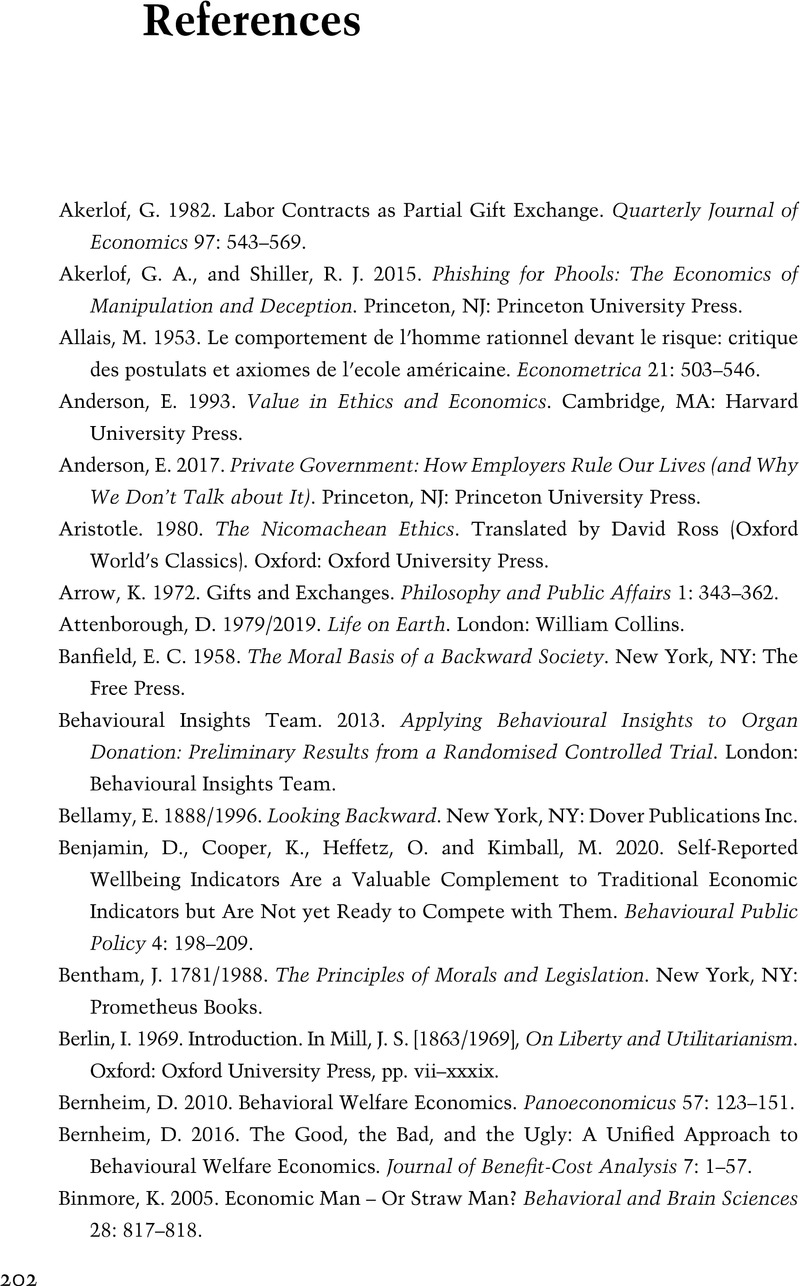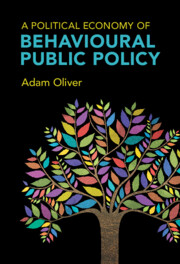Book contents
- A Political Economy of Behavioural Public Policy
- A Political Economy of Behavioural Public Policy
- Copyright page
- Dedication
- Contents
- Illustrations
- Preface
- Acknowledgements
- Introduction
- 1 Setting the Scene
- 2 Other Voices
- 3 A Kingdom of Ends
- 4 The View from Nowhere
- 5 Nourishing Flourishing
- 6 Anyone for Desert?
- 7 Private Matters
- 8 Public Matters
- 9 The Lives of Others
- 10 Summing Up
- Notes
- References
- Index
- References
References
Published online by Cambridge University Press: 16 February 2023
- A Political Economy of Behavioural Public Policy
- A Political Economy of Behavioural Public Policy
- Copyright page
- Dedication
- Contents
- Illustrations
- Preface
- Acknowledgements
- Introduction
- 1 Setting the Scene
- 2 Other Voices
- 3 A Kingdom of Ends
- 4 The View from Nowhere
- 5 Nourishing Flourishing
- 6 Anyone for Desert?
- 7 Private Matters
- 8 Public Matters
- 9 The Lives of Others
- 10 Summing Up
- Notes
- References
- Index
- References
Summary

- Type
- Chapter
- Information
- A Political Economy of Behavioural Public Policy , pp. 202 - 209Publisher: Cambridge University PressPrint publication year: 2023



